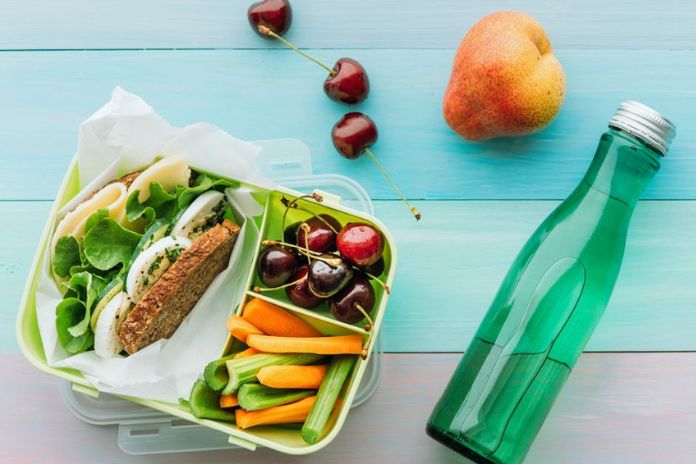This post will check out some tips for staying focused on a diet without suffering and enjoying all the benefits of a balanced diet.
Breaking old habits and reconciling an exercise routine with a diet is not easy, so the motivation to stay in line is significant in any weight loss process or mass muscle gain.
Whatever your goal, you must have already made some mistakes and know the obstacles you must face to achieve the desired results. After all, is resisting all temptations the best way?
Now, check out all the tips to stay focused on a diet!
- never skip meals
- Don’t miss out on the pleasure of eating.
- Plan your meals in advance
- Vary the foods you eat
- Strategically assemble your dishes
Never Skip Meals
While common sense associates dieting with skipping or undereating, resist the urge to skip meals. They eat every 3 hours to maintain satiety and avoid temptations, such as the sudden urge to ingest sweets and other calorie foods.
When you stop eating, you are likely to feel much more hungry when you eat again. This increases your lousy mood, encourages gluttony (as well as the weight gain it causes), and can strain your stomach.
Also, with the disorder of eating schedules, your hormones can work against you. If a person who spends long hours fasting decides to have a high-carb meal, their insulin levels can rise, contributing to fat retention.
Don’t Forget The Pleasure Of Eating
Never think that a diet implies stopping eating everything you like best. We know that pasta, sweets, and fried foods are not always the best option for your body, but consuming small amounts to satisfy your cravings should not be prohibited. After all, excess restrictions can cause binge eating episodes and even impair diet focus.
A flexible diet, on the other hand, offers many more scientifically proven benefits, as it encourages you to plan your meals without giving up the pleasure of eating instead of just following a menu). You can still enjoy the taste of your favorite dishes. The keyword is moderation.
Another tip is to opt for healthy but tasty foods, such as popcorn, peanut butter, nuts, and semisweet chocolate. Incorporate them into your routine and, in extreme cases where the diet must be strictly followed (preparations for competitions and marathons, for example), allow yourself to have at least one free meal a week.
Plan Your Meals In Advance
Determination and persistence are essential to staying focused on a diet, but there is another critical factor often overlooked by nutritionists and bodybuilders: planning.
Preparing your meals for the week in advance is beneficial to save time and allows you to eat correctly and not cheat on your diet, especially when you feel hungry outside the house and are about to fall into the temptation of opting for processed foods. Or fast food.
Another tip is to make a list with only items suitable for the diet before going to the supermarket and never go shopping hungry. A study by Cornell University in New York (USA) proved that the feeling of hunger favors the choice of more caloric and fatty foods for consumption.
Vary The Foods You Eat
You already know that some dishes are healthier than others. Still, the ideal thing is that your diet is varied to avoid monotony and ensure that you have access to all the nutrients your body demands daily.
Restricting your diet to raw salads or grilled chicken with sweet potatoes is demotivating and can make you lose focus on your diet quickly. Try changing seasonings, using the oven (or air fryer) more, and having more flexibility, so you don’t get sick of the diet. For example, chicken, broccoli, and cauliflower can be prepared in several ways: boiled, roasted, and even crushed into pate or rice.
Another tip to make eating healthier is to learn how to combine foods. If you don’t like chia or flax seeds, try adding them to yogurt, smoothies, or fruit salad. Making up for the items you don’t like with tastier ones is key to making your diet varied.
Mount Your Dishes Strategically
It is common to hear that colorful dishes are healthier. This is a straightforward way to get some clues about the nutritional level of your diet. However, if you don’t want to have doubts when putting together a meal strategically, divide your plate into four parts.
In this division, separate two parts for the vegetables (vegetables and vegetables), one for the proteins of your choice (animal or vegetable), and don’t be afraid to reserve the rest for the carbs.
As carbohydrates are considered a primary energy source for the brain, carbohydrates should never be cut out of any diet. However, refined carbohydrates (typically found in bread, pasta, and pastries) should be avoided as they trigger a release of insulin that can quickly lower blood sugar, heightening feelings of hunger and tiredness.
If the urge to ingest treats or other heavy foods is excellent, combine meals and snacks with reasonable amounts of protein. Because it is slowly digested, this nutrient ensures satiety that refined carbohydrates cannot promote. Some good sources to include in your diet are salmon, cottage cheese, eggs, soy, beans, chicken, turkey, and light tuna.
Finally, it is essential to set realistic goals. Staying focused on a diet is not always easy, but with these tips and a little discipline, it is possible to achieve the most satisfying results for your body and health.
Also Read:

